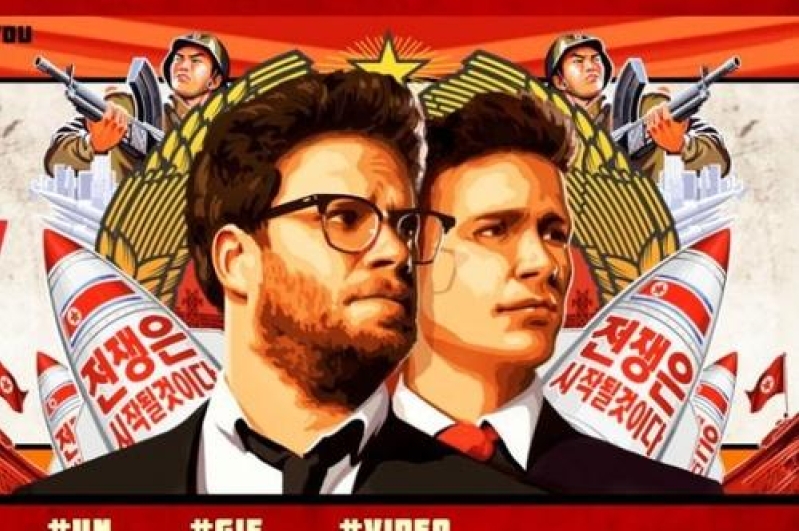
According to a United States government investigation, North Korea may have been behind the hacking attack that forced Sony to shutter the premiere of The Interview altogether.
The comedy film, which was scheduled to air on Christmas Day in U.S. theaters, drew the ire of cyber-terrorists known as the "Guardians of Peace." According to Reuters, the hackers attacked Sony last month, leaking documents that drew global headlines and distributed unreleased films on the Internet.
"Sony has no further release plans for the film," a Sony spokeswoman said on Wednesday when asked by Reuters whether the movie would be released later in theaters or as video on demand.
Although North Korea has officially denied any involvement with the hacking, Reuters noted that security experts in Washington placed responsibility on Pyongyang.
"The North Koreans are probably tickled pink," said Jim Lewis, a senior fellow with the Center for Strategic and International Studies. "Nobody has ever done anything this blatant in terms of political manipulation. This is a new high."
Sony Pictures issued a statement defending their decision not to move ahead with releasing The Interview, noting that movie theaters did not wish to show it at their venues.
"In light of the decision by the majority of our exhibitors not to show the film The Interview, we have decided not to move forward with the planned December 25 theatrical release," Sony's statement read. "We respect and understand our partners' decision and, of course, completely share their paramount interest in the safety of employees and theater-goers."
Sony Pictures added that it was "the victim of an unprecedented criminal assault against our employees, our customers, and our business." While the company is "deeply saddened" at the efforts to suppress its distribution of the Seth Rogen and James Franco film, Sony also stated that "We stand by our filmmakers and their right to free expression and are extremely disappointed by this outcome."
Judd Apatow, director of The Interview, was incensed by Sony's decision to pull the film out of U.S. distribution in theaters in the name of health and safety.
"I think it is disgraceful that these theaters are not showing The Interview," Apatow wrote on Twitter. "Will they pull any movie that gets an anonymous threat now?"
American chat show host Jimmy Kimmel agreed with Apatow on Twitter, blasting the decision by Sony not to show the film at all.
"I agree wholeheartedly," Kimmel wrote in response to Apatow. "[It is] an un-American act of cowardice that validates terrorist actions and sets a terrifying precedent."
Marlow Stern of The Daily Beast thought that the events surrounding the film's release by Sony was "surreal as to be ripe for satire." He blasted Sony's decision as "one of spinelessness," arguing that the government could not find any credible threats or terrorist plots against movie theaters.
"The notion that theater chains, along with a major motion picture studio, would give in to the demands of cyber-terrorists sets an alarming-and heretofore unforeseen-precedent," Stern wrote. "A group of hackers can now effectively shut down entire film releases that have taken years of planning and hard work by the studio employees, filmmakers, and thousands of crewmembers by displaying their might via hacking, and then releasing a vague threat."
Makoto Kikuchi, CEO of Myojo Asset Management, thought that Sony's decision to pull the movie was a financial one. Reuters reported that Sony's shares closed 4.8 percent higher in Tokyo on Thursday, outperforming the 2.3 percent gain on the Nikkei benchmark index.
"By not releasing the movie, they won't be hacked again. Investors think that from here on, further damage probably won't be done," Kikuchi said. "Whether that justifies a 5 percent jump in Sony's stock, I'm not so sure."







